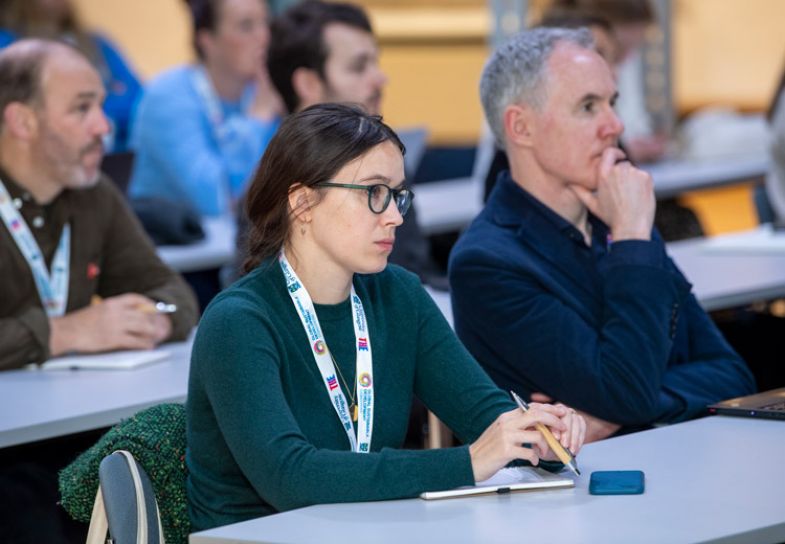
With higher education seeking to make a meaningful contribution towards the UN’s Sustainable Development Goals, experts say there is opportunity through effective collaboration and nurturing the next generation of leaders
Universities have the potential to play a key role in driving positive change in the world but must form meaningful, trusted partnerships to achieve those goals.
At the Global Sustainable Development Congress 2022, hosted by Times Higher Education in partnership with the University of Glasgow, a panel of experts discussed how universities could reduce global inequality and ensure impact in their actions.
Chair Rachel Sandison, vice-principal and deputy vice-chancellor of external engagement at the University of Glasgow, raised the role of higher education institutions in creating a more equitable society. She asked how realistic it was for universities to achieve this ambitious goal.
Victoria Galán-Muros, chief of research and analysis at the Unesco International Institute for Higher Education, said universities were training “future leaders” and driving a better understanding of society through research.
“We do believe that universities absolutely have the potential not just to be part of but to lead better futures for people, planet, prosperity. However, we do see in most cases this potential is not fulfilled,” Galán-Muros said.
Universities often did not realise that they were capable of driving such change, and many had a “complex, fragmented” structure that could make collaboration challenging, she said.
The panel discussed how universities could contribute to the UN’s Sustainable Development Goals (SDGs), 17 integrated goals “to end poverty, protect the planet, and ensure that by 2030 all people enjoy peace and prosperity”.
Cen Huang, vice-provost and associate vice-president (international) at the University of Alberta, said building “equitable and meaningful” partnerships between universities in the Global North and the Global South was “critical” for work on SDGs. “I also think universities…have a unique position for partnerships with governments, NGOs, community, industry and university partners near and far,” she said.
To be effective, Galán-Muros said, any collaborations should be based on trust and commitment. “The last couple of years have shown us that in those places where relationships and trust and that ecosystem work better, they were able to react much quicker,” she said. “The University of Oxford and AstraZeneca didn’t just get to know each other in the pandemic. There was already a relationship, there was trust, there was commitment. So that allowed them to, in an emergency environment, to very quickly react.”
Ameer Ibrahim, investment banking analyst at HSBC, said there had been a “substantial shift”, with the private sector willing to engage with higher education and NGOs to contribute to the SDGs. He said this would be increasingly important as businesses adopted greener processes, for example.
“The higher education sector will be a key anchor of innovation, of research partnerships, of industry partnerships,” said Ibrahim. “Universities have always adapted…and the market adapts and evolves over time. I think that the requirements of future graduates within various sectors, whether they’re looking to pursue private, public or third-sector roles, will change. I think sustainability will be a key part of that.”
Huang suggested that universities align institutional strategic planning, including internationalisation strategy, to incorporate the SDGs. “The other thing I want to emphasise is, what is the university’s mission? We do research, we do services but most importantly we educate our next generation of students who will be global leaders, who will carry on the mission,” she said.
In partnership with


























